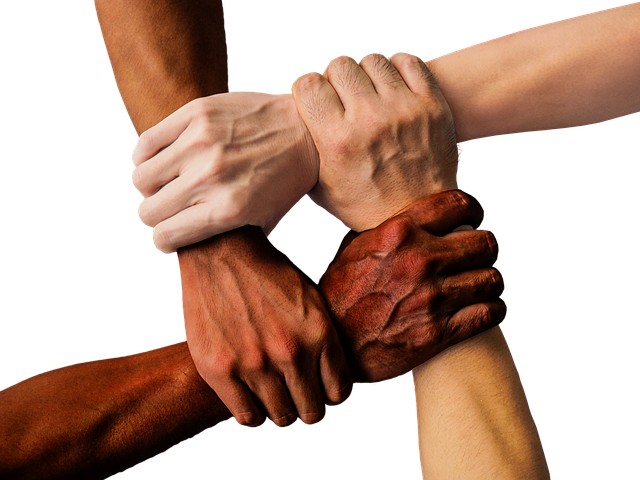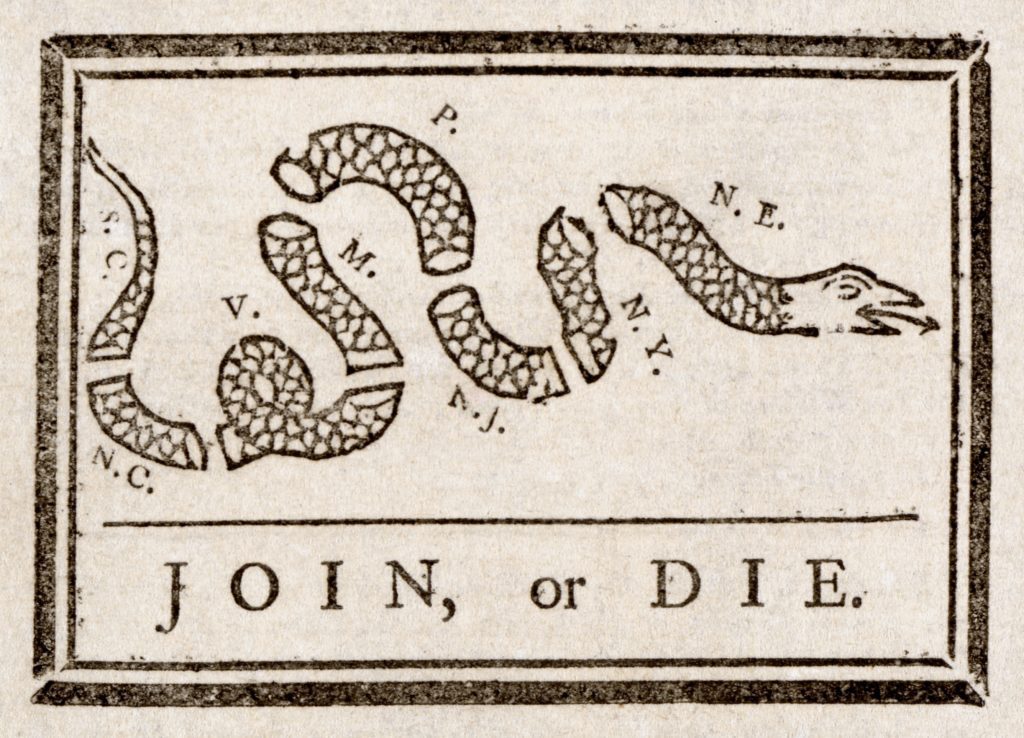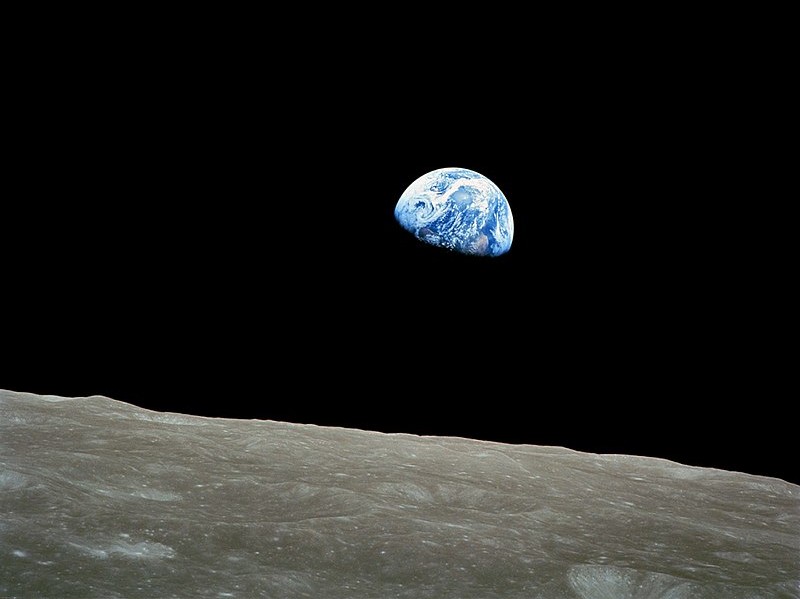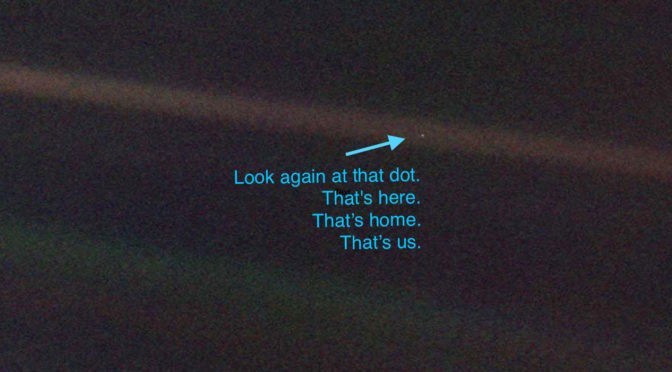
Every year on July 4th, Americans come together to celebrate Independence Day, but I, for one, take issue with the name of this holiday and the ideal of independence in general.
I should probably explain myself.
It is true that the 13 colonies which would eventually become the United States declared their independence from Great Britain and then fought a war to free themselves from the colonial yoke. But I don’t think you could accurately describe this as an exercise of independence. Instead, I would paint this as an exercise of interdependence.
In order to fight the war, the colonies had to set aside their individual differences and work together, a concept famously popularized by this Benjamin Franklin engraving:1

Furthermore, the success of this war hinged on financial and naval support from France. Winning their “independence” required relying on interdependence among the colonies and interdependence with the nation of France.
I point this out not to be a nit-picky historical know-it-all, but to highlight a harmful misconception most people have about the nature of success.
The Myth of Independence
Our culture idealizes independence: the self-made man who pulls himself up by his bootstraps, the lone genius who invents the future in the solitude of her basement workshop.
In reality, no great thing is achieved purely through independence. There’s no such thing as a self-made man (or woman). A brilliant company cannot bring its goods to market without the preexisting infrastructure that we built together. Creative genius is always the product of old ideas being combined in new ways or other people’s ideas being combined with your own.2 Heroes always have teachers, and they always have help.
Don’t get me wrong. Individual efforts matter. Inner resolve, grit, determination – whatever you want to call it – is a powerful force. But it’s only part of the story.
We think that the best among us are those who never need any help, so we cast shame on people who need assistance, and we avoid asking for help, even when we badly need it. In reality, humans have never gone it alone. We’ve always relied on each other. We’ve always organized ourselves into families, tribes, or teams. The reason our species dominates the planet is not our individual capacity for independence, but our collective capacity for interdependence.
We still spend so much time fighting amongst ourselves that we forget just how deeply interdependent we really are. This is our planet:

It’s the only planet we have. People often call for us to protect “the environment” as though humans and the planet that sustains us are independent of one another. In reality, of course, nature and humanity, environment and economy, us and our planet are all interdependent. It’s not the environment. It’s our environment.
And here is our planet viewed from the Voyager 1 spacecraft at a distance of nearly 4 billion miles:

“There is perhaps no better demonstration of the folly of human conceits than this distant image of our tiny world. To me, it underscores our responsibility to deal more kindly with one another, and to preserve and cherish the pale blue dot, the only home we’ve ever known.” –Carl Sagan3
But I digress. This is a self-improvement blog, after all. Turning to your own life, how can you apply the concept of interdependence?
Developing Interdependence
Since great success always arises from interdependent activities, developing your capacity for interdependence would be wise. Or, if you prefer, interdependence can be viewed as an ideal to strive for so that you can contribute the best you have to offer to the people in your life and to the world as a whole.
I learned this concept from Stephen Covey’s fabulous book, The 7 Habits of Highly Effective People. He describes a natural progression that humans go through as they grow up:
- Young children are dependent. They need help, mainly from parents, to survive and thrive.
- Older children and teenagers increasingly practice being independent. They learn how to take care of themselves.
- And, if all goes well, we grow up to be interdependent. We take care of ourselves as best we can, but we also take care of each other, we learn from each other, and we’re not afraid to ask for help when we need it. We live from the mindset that more can be achieved working together than going it alone.4
As you may know if you’ve been reading my work for a while, I begin each day with a routine of self-care. My morning routine is ostensibly an exercise in independence. I take care of my physical and psychological needs first thing, every day. But, I don’t do this as a precursor to a day spent working in isolation. I do this in order to be well prepared to engage with others in a helpful, productive, and mutually beneficial manner. I’m a better collaborator if I take good care of myself. That’s why Covey says that independence comes before interdependence.
So striving for independence is a good thing, but it’s not the end of the road. Once you’ve mastered taking good care of yourself, reach out to others and find ways to work together. And don’t fall into the trap of believing it’s a sign of weakness to ask for help.
And today, as you celebrate with family and friends, I hope you’ll recognize that the things you enjoy – the party you’re attending, the community you live in, and the nation you call home – are all products of interdependence.
Happy Interdependence Day!
1 “Join, or Die.” https://en.wikipedia.org/wiki/Join,_or_Die. (Ironically, this image was first created to inspire colonial unity with the British during the French and Indian War. It was later repurposed to unite the colonies against the British during the American War for Independence.)
2 Csikszentmihalyi, Mihaly. Creativity: Flow and the Psychology of Discovery and Invention. Harper Perennial, 1997.
3 Sagan, Carl. Pale Blue Dot: A Vision of the Human Future in Space. Random House, 1994.
4 Covey, Stephen R. The 7 Habits of Highly Effective People: Powerful Lessons in Personal Change. Fireside, 1990.
